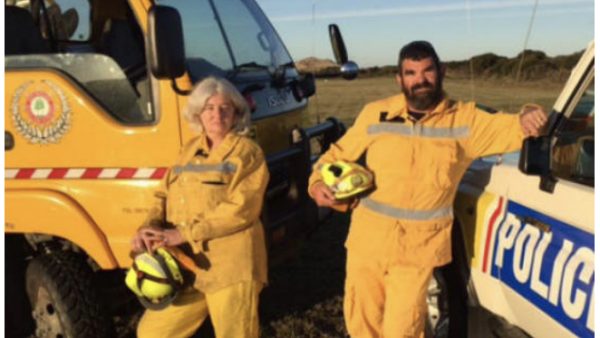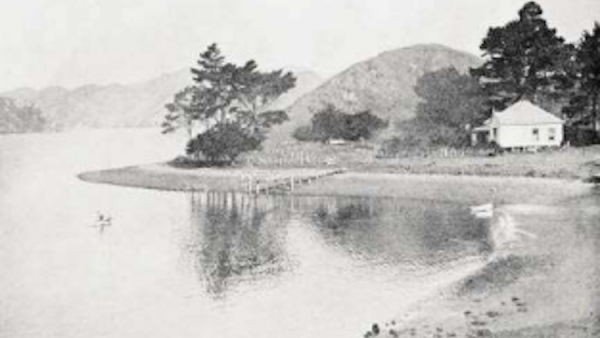Before the influx of activists from distant shores, Barrier stood as a bastion of rugged independence. In those days, local farmers scraped by with perhaps the most grueling livelihoods in the nation, heavily burdened by exorbitant freight costs. On the island, automotive regulations like warrants were lax, and property rights were held sacred.
The early 1990s marked a significant shift with the transition to a more stringent, formal governance under the Auckland Council. This new oversight was anything but smooth, as you’ll read. As council officers set foot on private properties to enforce new regulations, islanders would invoke the Magna Carta in defiance, the legal grounding of the argument was of course questionable, but it certainly illustrates a resolve not to give ground.
Today, opinions vary on whether Auckland Council’s intervention was transformative for better or worse. The island’s economy is now significantly underpinned by government funding—through a complex network of charitable trusts and initiatives like the Labour Party’s ‘jobs for nature’ program —the community’s self-sufficiency has waned.
An intense focus on pest eradication has overshadowed traditional industries such as tourism, agriculture, and other local enterprises. Many of today’s island dwellers have fled past lives to reshape Great Barrier Island in their own vision, championing a rat-free, predator-free 2050—a goal unachieved on any continent sans-Antarctica.
Imagine transporting back to the turn of the millennium to inform those featured in our below story that, in the present day, council staff are authorized to enter private properties in pursuit of Argentinian ants. Yes, in today’s regulatory landscape, the search for invasive ants on an island roughly the size of Manhattan is a preoccupation, and actually provides employment.
This reflection from the year 2000, originally published in Metro, is shared here with permission.
Tim Wilson is a Metro senior writer. Photography by Stephen Langdon.
We begin, sensationally perhaps, with a punch in the head. On March 20 1997. Council official Sean Deery had an altercation with goat farmer Ross McLachlan. Well, it depends on your point of view. Deery says it was an altercation: McLachlan says it was an assault. As well he might – the result for McLachlan was that he lost two teeth. Total cost for the repairs arid expenses was about $1500. A not inconsiderable sum given that he earns about $12,000 annually. Deery responded that he had torn his work pants. The local constable recommended that Deery be charged with assault but in the end Ross McLachlan never had his day in court.
The case is typical of conflicts on Great Barrier over recent years. It is the most documented example of what unhappy Burrier residents call a sick culture that infects Auckland City’s bureau-cratic dealings on the island. They say the council’s Enforcement Unit staff are thugs. (The correct term is Compliance Unit but no one, not even its members, bothers with this jargon.) It is no accident, they say, that some
enforcement officers are ex-army and police officers. Indeed island scuttlebutt has members keeping handcuffs in their office drawers.
Then there are the charges of sexual impropriety which center on a different Auckland City official who, it is said, used his position to harass women on the island. This official, whom for reasons that will later become apparent we’ll call Mr T. Towel, would, it’s said, offer a quid pro quo: “We need to talk about your council problem, man to woman.” Metro has taken affidavits from three women on the subject of Towel’s unwanted attentions. He may have approached as many as 12 women.
Alongside such claims are the rumours that flourish as vigorously as Barrier bush. Hearing these (and be assured, you will hear them. should you visit) may produce either a resolve to avoid the place, or head there pronto. Shock! Some council officials were bribed with hookers. Horror! They conspired with drug runners. Murder! They are culpable for the untimely demise of Nurse Nancy’s cherished pet dog Muffin.
Truly, we’re serious about the last one.
Now such claims – The Grand Conspiracy Theory if you like – are impossible to prove and, judging by the terms of reference (which include enforcement issues and conflict of interest disclosure). The Auditor General has enough on his plate. Auckland City meanwhile maintains an equivocal optimism about the investigations. “We believe we’ve done a good job in a difficult environment,” says Stephen Rainbow, the council’s Manager of Public Affairs and Advocacy, “but if the Auditor-General makes recommendations on how we can enhance the delivery of services or give more focused accountability then we’ll respond to that.”
TO UNDERSTAND, to get a grip on the charges and counter-charges that have flown between Auckland City and Great Barrier. It is helpful to recall that each was brought to the local body altar in 1989 by the Local Government Act, a shotgun wedding of sorts. A snapshot of that union might depict Auckland City ~ a corpulent bride, mentally calculating the dismal rates take vs the maintenance expenses, wondering how she will tame her rugged, handsome mate. The Barrier, of course, is the reluctant groom, weeping for his lost independence.
Great Barrier is a special case, special in the actual and platitudinous sense of the word. You cannot drive there, so a plane or a boat will deposit you on a patch of land containing 1200 souls. Each household earns about $15,000 annually. Great Barrier boasts a thriving marijuana and illegal fish trade and the isolation and low income make Iife doubly difficult: goods can be twice Auckland prices. Besides a sometimes desperate poverty, it is a place of drastic individuality. Local legend recounts how one citizen, disgruntled after years of inaction on an access road crossing his property, walked out one day and blew it up. Everyone knows everyone; they quote three digits for phone
numbers because the prefix 09 4290 is a given. Gossip and intrigue are hobbies.
The Barrier is aptly named, a beautiful, harsh place in which the population is altering and developers, greenies, island aristocracy and parvenus cohabit and sometimes squabble. Think Waiheke 15 to 20 years ago and you’re getting close.
So much for the general picture, let’s turn to specifics: Ross McLachlan and Sean Deery, “I’d just come home,” says the bespectacled McLachlan, “and I found these two guys on the property.” The men were
Auckland City enforcement officers. They did not identify themselves as such and said they were investigating a complaint that McLachlan was selling firewood. McLachlan wanted to know who had complained; the officers quoted the Privacy Act. Believing they were trespassing he asked them to leave. They quoted the Resource Management Act (RMA), He responded with the Magna Carta.
Deery and McLachlan were standing on a path bordered by a drop and a barbed wire fence with which McLachlan would soon be closely acquainted. Things grew heated, McLachlan says he grabbed Deery’s left shoulder because of the drop, he did not want to push Deery down.
McLachlan says Deery flicked off the hand and told him, “Don’t do that again or I’ll deck you.” Deery, who no longer works for the council and thus may comment, has a different recollection. He does not seem to be an ogre and he relates the dilemmas of enforcement compellingly. The only place citizens are happy to see an enforcement officer is on their neighbour’s property. Deery describes a council under pressure, given to endless restructuring and struggling to cope with a district plan that is effects- based rather than prescriptive as in town. “There are only two things prohibited by the Hauraki Gulf plan: breeding ferrets and building a nuclear power plant.” He regrets hitting Ross McLachlan, but says
it was a split-second decision: “I wasn’t going to get hit a third time.”
In his subsequent statement to police Deery said that McLachlan gave him no opportunity 10 identify himself as a compliance (or enforcement) officer. He says McLachlan was aggressive from the outset and that he used both hands to grab him. His statement reads: “Mr McLachlan then rushed at me with both hands attempting to strike me or knock me over. I moved to the side. His right shoulder or arm or hand struck me … I instinctively reacted to defend myself, I aimed a defensive block at Mr McLachlan’s chest area as I endeavoured to keep him away from me. I wish to emphasise that I did not seek to punch Mr McLachlan in the head.” McLachlan says Deery hit him two to three times: several body blows and one to the head, McLachlan saw stars; his tongue told him that there was something wrong with his teeth. He ended up on the barbed wire fence.
Deery says McLachlan “launched himself at me again from a crouching position”. McLachlan denies this. Deery applied a head-lock. The fence barbs ripped into McLachlan’s waist. Finally, McLachlan submitted, “I picked myself up,” he says, “and I was stumbling around trying to find my glasses.
The other compliance officer, John Mountain, came back and pointed in the grass. He said, ‘Over there! Over there! Over there!”
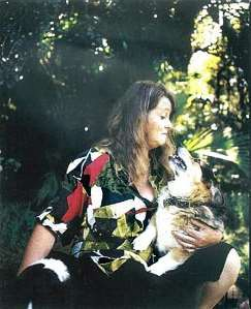
Obviously there are discrepancies between Deery’s and McLachlan’s versions. Deery points out that John Mountain’s statement, while being a little different confirms his. Mountain, he says, would not have backed him out of loyalty; he had been on the job only for a week. But then Great Barrier Constable Callum McGillivray, in a May report to his superior, wrote that what Deery told him the day after the incident sat “closer to [McLachlan’s] statement than what Deery’s statement is now”,
LEAVE THEM hanging for a moment, at cross- purposes, and move to the summer of 1998. Frances Beazley, then-animal ranger for Auckland City, is working in the pound. Who should drive up, but council official T. Towel in his 4WD. He has a bottle of wine and, according to Beazley, vileness on his mind. “He wanted to know if I would go back to his motel and drink the wine with him. He said he would hang a tea towel out the window of his unit so I would know which one to come to. I could come the back way.”
The humble domestic aid reduced to a horny ensign! Beazley told him that she wasn’t interested. She repeated this 18 times, in varying circumstances. But, according to Beazley, Towel was nothing if not pragmatic. When Beazley had made her reluctance plain: she says that he suggested that she procure a girl for him. Again, there was a caveat: this woman should have a place where he might conceal his council vehicle during the assignation.
In total, Beazley believes, Towel tried similar approaches with 12 women, one of whom was in her 70s. Others confirm Towel’s predations. Barrier resident Madelene Frost says she knows of three women towards whom the official behaved inappropriately. His strategy appears unaltered. One, who was then in the midst of a messy separation, was told that she could obtain what she wanted from council if she “looked after” Mr Towel. “She broke down,” recalls Frost and said that she couldn’t contemplate a sexual relationship with anyone.”
Frost’s other cases contain similar features, the apparently unresolvable council situation that might be ameliorated by a little tenderness, a bottle of wine, a little man-woman discussion. Another woman, Christine Todd no longer lives on the Barrier. She recalls that Towel would often attempt to touch her, such as placing his hand on her shoulder while he was performing council duties. In late summer last year, though she had only known him in his council capacity, he rang her at night and asked her out to dinner. He then phoned her at work. “He said we had things to discuss,” she recounts, “and we couldn’t possibly do it over the phone.” Todd found Towel’s behaviour inappropriate. “It made me feel afraid. He was a man with power on the island, because of his council role.”
These complaints would have taken longer to reach the public domain had not Act MP Owen Jennings, under the cloak of parliamentary privilege, tabled a list of what he claimed were 165 examples of abuse of power in the Hauraki Gulf. This latest episode in Act’s ongoing populist crusade against the RMA and bureaucracy prompted Mayor Chris Fletcher to call in the Auditor General’s office, an act that some at council clearly believe to be futile.
His whole story is a waste of time,” announces Stephen Rainbow, as he drapes his Nicholas Blanchet jacket over the hook on his office door. Clearly Rainbow is no walk-socks-clad local body drone. The jacket denotes a certain louche style as does his goatee, which does not move as the mouth within explains how the real story here is the clash between individual property rights and the public good, a conflict that is being repeated nationwide. “I remind you” he observes, “that it was only a few years ago that the Buller District Council put a bulldozer through someone’s house because it didn’t comply.” Translation: Compared to the competition, we’re softies.
Rainbow’s defence has several prongs: (I) the regulatory environment did this, not us. (2) The Hauraki Gulf is an unusual area, regardless. (3) The council has not received one single complaint of sexual harassment, and it has actively sought them.
(4) Some allegations are anecdotal, and he won’t dignify those. (4a) No, he won’t discuss the Ross McLachlan case because he’s not familiar with the details; anyway it has been exhumed from history. (5) Since these issues were raised by the Act Party Metro is being manipulated into abetting its political agenda.
Were Metro that gullible, then so much the better for Rainbow because he will have us marching to his drum in no time
at all. In fact, let’s do it. The point about the RMA has some merit. The act symbolises the divide between those who believe all bureaucrats are incorrigibly venal, and those who insist’ that green laws must, of necessity, have strong powers. It is a very Great Barrier-ish separation, one that exacerbates the natural friction between those who welcome development and those who see it as the latest instalment of a world-wide environmental cataclysm. The Barrier is an outpost and thus contains pressures that you will not encounter within, say, the well-ordered confines of Mt Albert.
When Rainbow asserts that the accusations are politically motivated and thus should be discounted, he’s half-right. The Act party is unlikely to be remembered for its contributions to idealism. While he accepts the principle that even those with questionable motives may have reasonable grievances, Rainbow confides that people are clamouring to evacuate Owen Jennings’s list. They didn’t know their names were on the roster; they’ve been manipulated by the very people who are claiming to be council victims.
RAINBOW IS REFERRING, albeit not explicitly, to Adrian Chisholm and Les Harrington. Chisholm is currently involved in a lengthy legal battle with Auckland City after a property he was helping develop on Waiheke became contentious. He is the man on whom, it was revealed in February council paid $8000 to have a private investigator snoop. Harrington, too, propounds a jeremiad about council abuses following disagreements over his
property on Great Barrier. He maintains that he also suffered the spy treatment, including the theft of his diaries, a suggestion Metro has been unable to confirm.

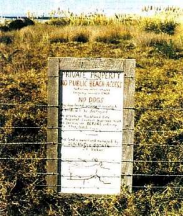
Both have taken legal action against council and plainly each sees in the other his own reflection. Both men were once well-off. Harrington says his children grew up frolicking in a pool that cost $100,000. Chisholm made his pile in the 80’s. Their circumstances are now greatly reduced. Each refers to the John Grisham novel ‘The Rainmaker’ to describe his plight: decent folk crushed by a large, cruel monolith. Both have become adept with keyboards. It was Les Harrington who compiled the list that Jennings tabled in Parliament. Depending on who you talk to, Chisholm and Harrington are either heroes, a little obsessed or single-issue fanatics. What is clear is that after almost a decade between them of disputes with council, they are not the people they once were.
Rainbow asserts that many of those on the list lack genuine grievances, or indeed have no idea they were suffering an abuse of power. He also believes that part of the council’s problem is that it fails to promote all the excellent work done in the Hauraki Gulf. The newly sealed airstrip at Claris on Great Barrier is a perfect example. But then he evinces a pro-council mutation of the council-haters’ Grand Conspiracy Theory. “I have a passionate commitment to democracy,” he explains, “and it concerns me that democracy continues to be discredited by people who are using it for political objectives”. And he is exercising this passionate commitment by doing public relations for Auckland City. “I’m not a public relations person,” he harrumphs. Hmm. Thirty centimetres from Rainbow’s elbow lies a volume titled Effective Public Relations.
Rainbow waxes on, “It bugs me when we have done a good job in a difficult environment, and it bugs me when we have to jump to other people’s tunes here.” He disagrees that the jumping to other people’s tunes is one of those onerous duties that democracies must fulfil. “It’s more a sad reflection on the state of politics,” he replies.
WE RETURN TO MCLACHLAN and Deery. The physical confrontation is over, the legal one about to begin. Then – Great Barrier police constable Callum McGillivray thought there was sufficient evidence for the police to press an assault charge against Deery under the Crimes Act. He believed Deery had inflicted the blow on McLachlan. Furthermore he doubted that
McLachlan struck at the council officers.
Council solicitors became aggressively involved in what followed, taking the legal action in a direction McGillivray could not have predicted, Unlike McLachlan, who had given his version to a police officer, the council officials’ statements were taken at the Simpson Grierson building by Auckland City solicitor Robert Gapes. Gapes indicated that the council might lay a complaint of assault against McLachlan, as he assaulted the council workers first.
McGillivray had pointed out that grabbing someone’s shoulder in order to show them the gate was not a strike but Auckland City still laid a formal complaint of assault against McLachlan on 21 May. The suit and counter-suit stood for a period, and then, after a cooling-off interlude, the assault claim and the original complaint which had taken Deery and Mountain to the property were eventually dropped. McGillivray noted in his job sheet, “I personally feel that there is no point reinterviewing Deery as his lawyer has been very active in this matter.” This activity would not cease once he had forwarded the file to his senior officer. The constable noted, “there is an arrangement between Robert Gapes and [police legal] that they will sit down and go through the legalities of the file.”
McGillivray’s supervisor, Ian McCormick, recommended that the police not pursue the case, largely because there were two witnesses against one. McCormick, whom an ex-colleague describes as “the straightest guy I’ve met”, now works for Auckland City on Waiheke Island. Further grist for the rumour mill.
“IT’S A COVER UP,” says Ross McLachlan. This is unlikely; cover-ups, like conspiracies require a level of organisation that seems beyond the council. But even Mayor Christine Fletcher concedes that in the past (that is, before her reign commenced), the council has displayed an officious and heavy- handed approach to complaints. Letters of complaint, for example, were acted on by the very officials who were being complained about, hardly an independent process. Auckland City’s response to attacks from without resembles the behaviour of a lumbering elephant being peppered with buckshot. It registers the momentary pain and confusion of the volleys, and keeps on trucking.
This theme is repeated with regard to council responses to Frances Beazley. Beazley says she complained to Cushla Buchanan (manager of Auckland City’s service center on the Barrier) that Towel had been making unwarranted advances to her. “I said, ‘What can I do? He won’t take no for an answer, ‘” recalls Beazley. Buchanan’s reply, Beazley says, was that she thought this was just Towel’s way, and that he had been transferred to the Gulf because he had been problematic in his previous mainland-based role with the council. Metro approached Buchanan, but she refused to talk. Stephen Rainbow says that, given previous media harassment, Buchanan would not be available for comment. Buchanan didn’t sound harassed, rather she told Metro, “I can’t speak to you. You’ll have to talk 10 Stephen Rainbow first.”
All very circular. Metro interviewed two former council employees who had worked with Towel.
There was, both said, an aura of strangeness about him, not a gibbering obvious perversion, but one was asked at an exit interview what Towel did. Excuse me? Towel would disappear into the field for three to four hours a day but produce no fieldwork. Council suspicion was such that it attempted, without success, to tail Towel. Both men said that they believed that Towel was transferred because that way at least council would know he was on one of two islands. More damningly, one added. “It was well-known in council that the people who were a handful got dumped in the Gulf.”
The complaints intersect. Frances Beazley’s name was on the Jennings/Harrington list of alleged power abuses, along with that of enforcement officer John Mountain. She says she was rung by a snarling John Mountain, who demanded, “Why the fuck was I on that list?” When Beazley asked how he had come to see this list, he replied that he had “friends in high places”. Stephen Rainbow says Mountain is, like Buchanan, out of bounds. But he refuses to condemn, even in principle, the idea of a council official uttering the word ‘fuck’ to a citizen. “Given the agendas, I’m not prepared to accept anecdotal evidence.”
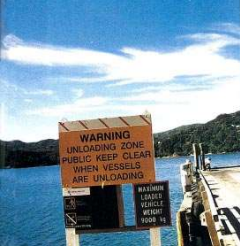
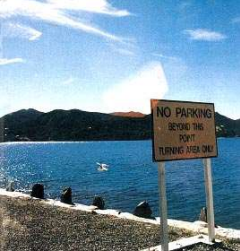
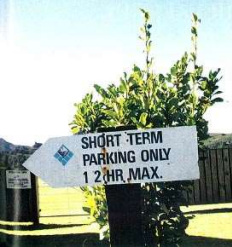
SUCH A RESPONSE SEEMS out of step with the kinder, gentler tone of Christine Fletcher’s regime. She says that one of her three goals when campaigning was the establishment of a city ombudsman-like position “to ensure the public felt they had been heard” and amending the office culture that surrounded complaints. “We had two problems. (I) Council (as in the political arm) had never defined policy on complaints, so it was critical of officers. (2) It would appear that we had created a very risk-averse culture because officers didn’t like being criticised, which created a defensive culture.”
Fletcher believes she changed that. This month, former lawyer Julienne Fisher begins work as the council’s complaints review consultant. Fisher will review complaints files and present two reports (one preliminary, one final) suggesting ways to resolve the arguments. Her final report will not be binding on the complainants or council, who still have recourse to the courts and the Ombudsman but Fletcher maintains, “I would go so far as to say that council will accept it.” Greater responsiveness to complaints is now a policy objective enshrined in CEO Bryan Taylor’s contract. “If he has on a regular basis six or seven very negative reviews from the complaints review consultant,” Fletcher intones, “and he fails to deal with those, then it’s not going to look good.”
The very mention of sexual harassment turns the Mayor scarlet with rage. “I take sexual harassment very seriously,” Great Barrier community board chairman John Mellars raised allegations of sexual abuse when Fletcher visited the island but has not put them in writing, despite request, from both Fletcher and the council CEO to do so. Mellars says it’s for the women involved to complain. “That’s why I really welcome the Auditor-General’s review,” continues Fletcher “because what can I do if I’ve got a community board chairman who won’t action such serious allegations?” Um, excuse me
Mayor, but the terms of reference specifically exclude sexual harassment allegations, “Oh, do you have terms of reference there?” Much ruffling of paper as the appropriate provision is found. In fact the council will be conducting its own inquiry into the allegations. The Auditor-General “will be kept informed”. Fletcher doesn’t miss a beat, “I hope that part of your article will impress on people if they’ve got a complaint, then bring it to myself or the CEO.”
Ah, politics. ah, mudslinging. The anti-council faction is prepared to go on the record about this or that’s proclivities. X’s kick-backs. Y’s secret affair. Council Officials, on the other hand, murmur off- record of serial litigants, and of the shameful histories of their enemies. Go and make some inquiries, both sides say, you’ll see. But in this particular case inquiries only produce further
inquiries. Some council-haters do inhabit the fringe: property rights aficionados, people who believe in secret reports and funny handshakes. The dispossessed obsessed. Metro was told more than once (with the usual caveat, “Yes I know it sounds outlandish”) that Freemasonry was the hidden skein that drew together pro-council factions on the island.
Some of these people have become professional complainers. They’re good at it. They can also be short on hard facts. When challenged to present one, just one, single piece of documented evidence for an allegation, a source told Metro. “I don’t have any. It’s more the pattern.” But patterns aren’t incontestable. “Well,” this person replied, “isn’t that what a conspiracy’s all about?” Yes, and once you believe The Grand Conspiracy Theory, everything confirms it. Proximity is often offered as evidence of direct participation, but in the Hauraki Gulf everyone is nearby – antagonists have often known each other for years. Sean Deery says he was once friendly with a man who slapped a harassment suit on him.
BUT THE COUNCIL IS INCONSISTENT. Part of the problem is the effects-based district plan which means that consent decisions appear incoherent. One case may receive consent where another, in apparently similar circumstances, will be denied. The difference is often how much money you are prepared to spend on consultants. Council arguments are also unconvincing. It claims that the context (RMA, testy anti-bureaucrats) mitigates
specific and serious charges. It maintains the Hauraki Gulf is a special case, but then as Christine Fletcher says. “Auckland’s still one city.” In short, the Gulf is a special case when it suits the council. And no, the problem is not, as Stephen “1 adore democracy” Rainbow believes, a lack of self-promotion, Yes, sinking money into an airstrip at Claris is a good idea, It may not have been so clever in 1995 to restructure (i.e. chop) management positions on the island, further isolating the place and allowing local disaffection to build. A further management restructure in 1997 didn’t help either.
The council wants its cake and to eat it too.
When challenged with the possibility of a legal threat, it behaves like a corporation, wheeling in lawyers, firing off a counter-suit and scaring the bejesus out of everyone.
When challenged in the media, it sniffles like a Pekinese, and protests that it is a well- meaning public body under political attack. If the stoush is merely a family feud in which Auckland City has become enmeshed, why forbid Metro access to those who could quietly offer their side, the Cushla Buchanans and John Mountains?
Council is in a bind about the sexual harassment allegations. It is inordinately difficult to proceed if no formal complaints have been laid. The requirement to be a good employer means it must stick by Mr T. Towel (currently on leave), and rightly so. But to protest ignorance of Towel’s unusualness is stretching credibility. Frances Beazley says she intends putting her concerns in writing, albeit to the Human Rights Commission. Madelene Frost will be doing the same, regarding what she says was council’s unwillingness.to take the complaints seriously, Christine Todd too will write, albeit to the Auditor-General. “I can’t believe the investigation is being conducted by council,” she says. “That’s inappropriate, Council holds all the power on the Barrier.” For this reason, she believes few will come forward.
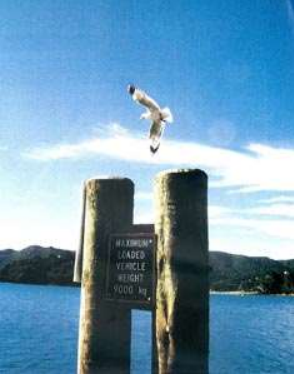
Perhaps the council’s sole demonstration of coherence has been the revelation that it snoops on its own staff (Mr Towel again) as well as citizens it dislikes. In such acrimonious circumstances, it is salutary to remember those at the bottom of the
pile, a subsistence-level goat farmer with two holes in his mouth where his teeth once were, a newly separated woman sobbing because she doesn’t much feel like having sex with anyone, let alone a council official. These people lack the money and power to combat what they see as an indifferent bureaucracy.
A wealthy bureaucracy, too. While this piece was being prepared, the council budget for public relations and advocacy was increased from $500,000 to $1.5 million. Additionally, the council bumf sheet City Scene trumpeted new penalties under the RMA with the headline “More teeth for environmental protection”. How very fine it would be if Ross McLachlan were extended the same advantage.
* As this issue went to press, Mayor Chris Fletcher phoned Metro to advise that she had received sexual harassment allegations from a credible source and that she was pursuing the matter. Metro has learned that after the complainant contacted the Mayor’s office, she was phoned back – by a not-on-leave T. Towel.





